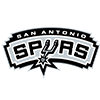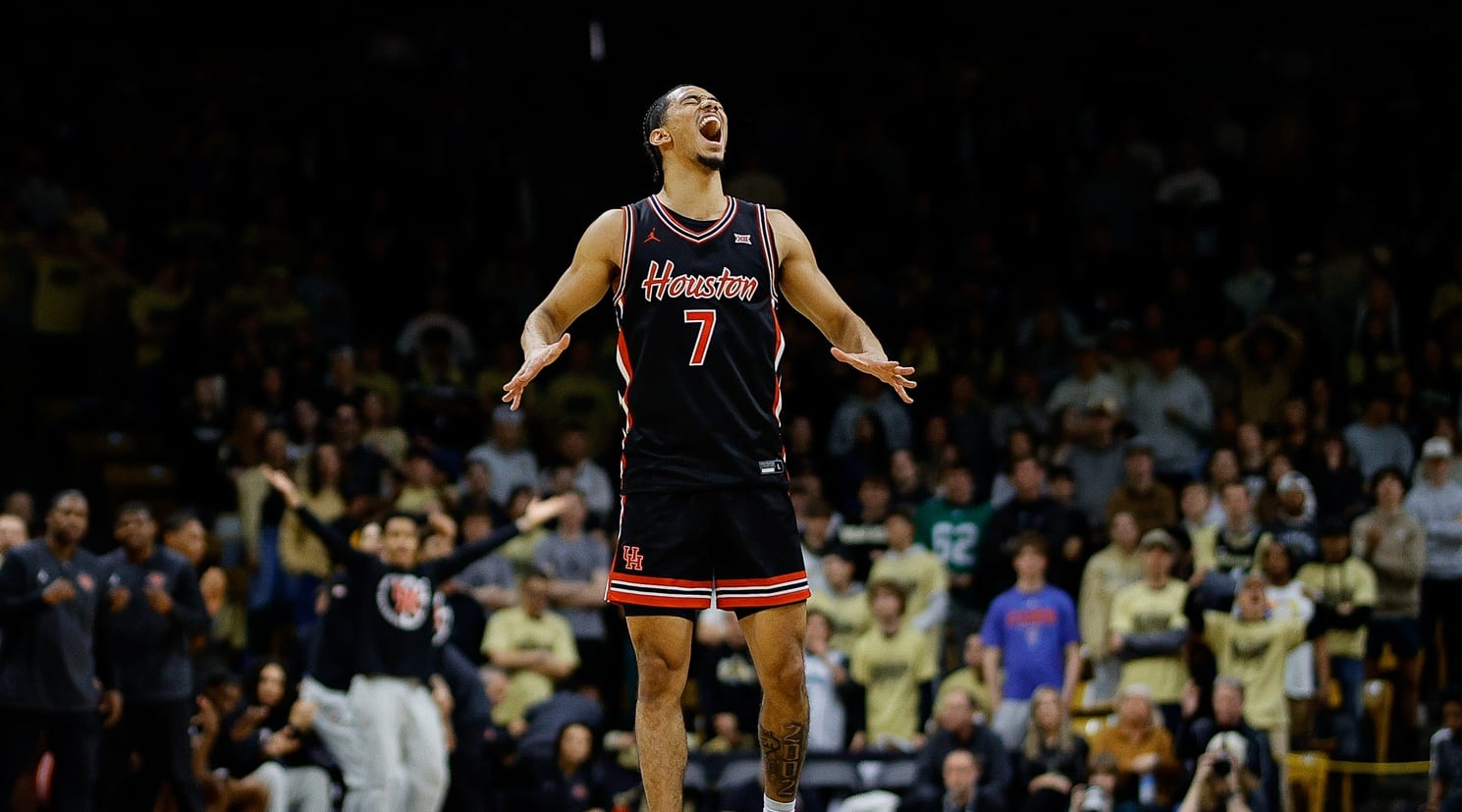Anger. Betrayal. Frustration.
Those are just a sampling of the feelings with which Joseph Young must have dealt over the past few years in his dealings with the NCAA. On October 25, however, Young felt a new sensation: relief. After months of waiting, Young, a sharpshooting guard who transferred from the University of Houston to the University of Oregon this summer, was given notice that the NCAA granted his waiver petition allowing him to play immediately for the Ducks.
But first, a quick recap.
In 2010, Young, a Houston native, was one of Keno Davis' recruits at Providence University. Citing a desire to remain at home with his family in Houston, where his aunt was awaiting a heart transplant and his father, Michael (a former member of the famed Phi Slama Jama at Houston), was recently named the director of basketball operations at Houston, Young requested the Friars to release him from his National Letter of Intent. Davis denied Young's request, costing Young a year of eligibility as he was forced to redshirt his freshman season after his appeal with the National Letter of Intent office was denied.
Flash-forward.
After averaging just over 11 points in his first season with Houston, Young led the Cougars in 2012-13 with a stat-stuffing line of 18 points, 3.5 rebounds, and 2.5 assists (including 42 percent from three and 87.5 percent from the line) per game. However, Michael was not offered an extension after his contract as director of basketball operations expired, and was
Anger. Betrayal. Frustration.
Those are just a sampling of the feelings with which Joseph Young must have dealt over the past few years in his dealings with the NCAA. On October 25, however, Young felt a new sensation: relief. After months of waiting, Young, a sharpshooting guard who transferred from the University of Houston to the University of Oregon this summer, was given notice that the NCAA granted his waiver petition allowing him to play immediately for the Ducks.
But first, a quick recap.
In 2010, Young, a Houston native, was one of Keno Davis' recruits at Providence University. Citing a desire to remain at home with his family in Houston, where his aunt was awaiting a heart transplant and his father, Michael (a former member of the famed Phi Slama Jama at Houston), was recently named the director of basketball operations at Houston, Young requested the Friars to release him from his National Letter of Intent. Davis denied Young's request, costing Young a year of eligibility as he was forced to redshirt his freshman season after his appeal with the National Letter of Intent office was denied.
Flash-forward.
After averaging just over 11 points in his first season with Houston, Young led the Cougars in 2012-13 with a stat-stuffing line of 18 points, 3.5 rebounds, and 2.5 assists (including 42 percent from three and 87.5 percent from the line) per game. However, Michael was not offered an extension after his contract as director of basketball operations expired, and was instead offered a different, mostly ceremonial position. Feeling slighted by his alma mater, Michael decided to turn down the ceremonial position and Joseph, apparently miffed as well, announced his intent to transfer to Oregon in June of this year.
Under NCAA rules, if a student-athlete seeks to transfer, he or she must sit one year before competing at the new school and will lose a season of competition in all sports. All NCAA rules, however, are subject to waivers from the Subcommittee for Legislative Relief (SLR) and the NCAA staff in that area. The NCAA's transfer rules have a number of such waivers. The most well-known are the graduate transfer waiver (where a player who graduates may transfer without losing a year of eligibility under some circumstances) and the hardship transfer waiver. The hardship transfer waiver is for student-athletes who are compelled to transfer because of financial hardship or an injury or illness to the student-athlete or a member of their family.
A father being offered a different job might seem like a modest case for a hardship waiver, but last year, a similar situation arose that provides some precedent. Following a disappointing 2011-12 season, Central Michigan fired its head coach, Ernie Zeigler. Ernie's son, Trey, a sophomore guard for the Chippewas, sought to transfer following his father's dismissal. The NCAA granted Zeigler's hardship waiver, paving the way for Zeigler to play right away at Pittsburgh during the 2012-13 season. Young's case is admittedly murkier since his father technically wasn't fired at Houston, nor was he the head coach, but the NCAA apparently saw the need to protect the shooting guard from the potentially awkward situation he'd have faced had he remained with the Cougars.
Regardless of your feelings or thoughts on the NCAA (and the potential hypocrisy in some of its decisions), the fact remains that the grant of Young's waiver will provide a huge boost to Oregon, who was predicted to finish fourth in the Pac-12 in a media vote conducted before Young's waiver was granted. Sporting tremendous counting stats and percentages, Young should have ample opportunity to secure a prominent role in the Ducks' backcourt. While it remains to be seen how Young will mesh Damyean Dotson, Johnathan Loyd, and Dominic Artis, Young should thrive in Oregon's up-tempo offense*, and could be a sleeper candidate in many fantasy leagues.
*In his first action with the Ducks, Young had 20 points, five steals, and three assists in 26 minutes in an exhibition win over Northwest Christian University on October 27.
Young was not the only high-profile transfer to receive clearance to play immediately in the last few weeks. On October 23, Georgetown University announced that UCLA transfer Josh Smith had been granted a waiver by the NCAA to play immediately for the Hoyas while retaining his two years of eligibility. Smith, who was a McDonald's All-American coming out of high school, averaged of 10.9 points and 6.3 rebounds per game as a freshman at UCLA, earning All-Freshman honors in the Pac-10 (now Pac-12). However, weight and maturity issues quickly caused a rift with then-head coach Ben Howland, and Smith's minutes dropped to just 17.2 minutes per game as a sophomore. Smith returned to the Bruins in 2012 for his junior season, appearing in six games, but was reduced to a bit player with his lack of conditioning continuing to be a major issue. In January 2013, Smith transferred to Georgetown, sitting out the second semester but attending classes and practicing with the team.
Unless a waiver is applied for and granted from the NCAA, all student-athletes are limited to four seasons of competitive eligibility in each sport. A student-athlete uses a season of competition for a given academic year as soon as he/she participates in a competition (excluding NCAA-legislated preseason exhibition contests and practice scrimmages) against an outside team (i.e., any team that includes individuals who are not on the institution's team during that academic year). Any competition during a season, exhibition or otherwise, regardless of the amount of time spent, counts as one season of competition in that sport.
Under typical circumstances, the 2013-14 season would be Smith's fourth year of competition (as he played in six games last year for the Bruins), and Smith would not have been eligible to play for the Hoyas until the second semester. Still, Georgetown applied for a special waiver - a Seasons of Competition waiver - on behalf of Smith, seeking to secure his immediate eligibility. Remarkably, Smith's waiver was granted, giving Smith two full years of eligibility at Georgetown despite him having played in 33 games at UCLA in 2010-11, in 32 games at UCLA in 2011-12, and in six games at UCLA in 2012-13. Essentially, the NCAA wiped Smith's last season with the Bruins from the record books.
Unlike Joseph Young, precedent did not favor Smith. In fact, the NCAA's decision seems to fly in the face of recent decisions by the institution. In June, sticking to the letter of the law, the NCAA denied a Seasons of Competition waiver to Old Dominion's Donte Hill. Hill, who transferred to ODU from Clemson following his freshman season, had appeared for Clemson in an NCAA-sanctioned, in-season scrimmage against Georgia in the fall of 2010, his sophomore season. He played eight minutes. Days later, Hill announced he was transferring. After sitting out for a season as a transfer, Hill was classified by ODU as a sophomore in 2011-12 and as a junior last season. The NCAA was not fooled, and Hill was forced to submit a waiver requesting an additional year of eligibility. Under NCAA bylaw, "any competition, regardless of time, during a season in an intercollegiate sport shall be counted as a season of competition in that sport." The NCAA denied Hill's waiver, stating that his eight-minute appearance in a scrimmage counted as an entire year of eligibility.
While the NCAA has granted Seasons of Competition waivers in exceptional cases (i.e. the players who left Rutgers amid the Mike Rice scandal were granted waivers), Smith's case seems to contradict the NCAA's hard line when it comes to enforcing its bylaws. Yet, according to NCAA spokesperson Chris Radford, "the decision was based on the totality of circumstances and well-being of the student-athlete." No other details or explanation could be provided due to "student-athlete privacy."
This is not the first nor will it be the last time the NCAA acted with curious inconsistency. However, neither Young nor Smith will complain. Smith, in particular, should provide a huge boost to a depleted Hoyas' front line. Smith, who weighed 350 pounds when he arrived at Georgetown last winter, is down to around 310 points on his 6-foot-10 frame. Given his gifts and his exceptional landing spot – the Hoyas have a history of getting the best out of their front court –Smith ranks 95th overall on RotoWire's big board and as one of the top 15 centers in the NCAA. As such, if either Smith or Young can guide fantasy teams to titles this season, their owners should be sending a thank you note to the NCAA.






























